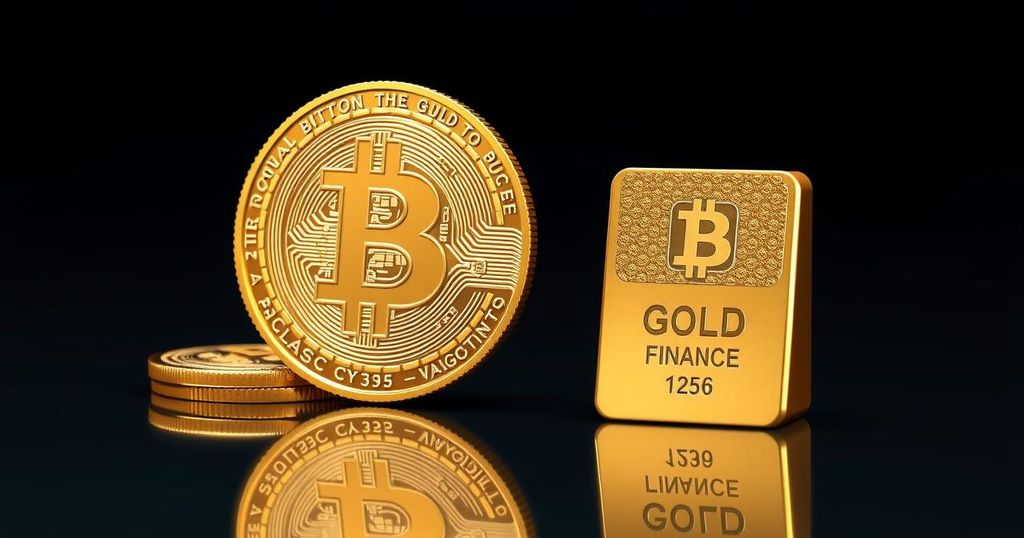Exploring Bitcoin as a Financial Safe Haven
This article explores Bitcoin’s potential as a safe-haven asset amidst financial instability. It examines its volatility compared to gold, the institutional interest it garners, and the impact of current economic conditions. While Bitcoin shows promise as a financial asset, its reliability is debated due to price fluctuations and its connection to riskier markets.
In today’s dynamic financial landscape, the viability of Bitcoin as a safe-haven asset is increasingly examined. With traditional safe havens like gold encountering challenges, Bitcoin offers distinct advantages, yet its notorious price volatility raises concerns regarding its stability. A comprehensive evaluation of Bitcoin’s potential as a safe haven requires consideration of both its positive attributes and inherent drawbacks.
Bitcoin’s inherent volatility is a significant impediment to its acceptance as a safe haven. Unlike gold, traditionally viewed as a stable store of value, Bitcoin experiences dramatic price fluctuations within short periods. This unpredictability raises doubts about its ability to provide the security that investors typically seek during economic turmoil. Although it offers decentralisation and global liquidity, its price instability complicates its status as a lower-risk investment.
Despite its price volatility, Bitcoin is garnering attention from institutional investors, which may enhance its reliability as a safe haven. The increasing integration of cryptocurrency into traditional banking systems is reshaping perceptions of Bitcoin’s trustworthiness. As financial institutions explore cryptocurrency banking solutions, Bitcoin is carving a niche in the financial domain. This institutional engagement could provide the stability and credibility necessary for Bitcoin to be identified as a safe haven, particularly amid economic uncertainties.
A comparative analysis of Bitcoin and gold reveals distinct advantages and disadvantages for each asset. Gold boasts a longstanding reputation as a safe haven, characterised by stability and intrinsic value. In contrast, Bitcoin offers decentralised features and a finite supply that enhance its appeal. However, its volatility and correlation with risk assets like equities raise questions about its reliability as an alternative. Opinions vary, with some analysts suggesting that Bitcoin and gold can coexist as safe havens, whereas others remain sceptical about Bitcoin’s ability to supplant gold.
Economic factors significantly influence the perception of Bitcoin as a safe haven. Geopolitical instability, inflation concerns, and fluctuations in the US dollar shape investor attitudes towards cryptocurrency. While traditional currencies face their challenges, Bitcoin’s potential as a digital currency could present a viable alternative for those seeking stability. However, its continued price volatility poses considerable risks, leading investors to approach with caution during economic downturns.
In conclusion, Bitcoin demonstrates characteristics of a potential safe haven, yet its volatility and correlation with risk assets invite skepticism. The discourse surrounding Bitcoin’s status as a safe haven is nuanced and evolving. While some view it as a useful complement to traditional safe havens, others regard it as a speculative venture. As institutional adoption increases and economic circumstances evolve, Bitcoin’s role within finance may continue to grow. However, its classification as a safe haven remains a contested topic, underscoring its complex nature in contemporary economic settings.




Post Comment